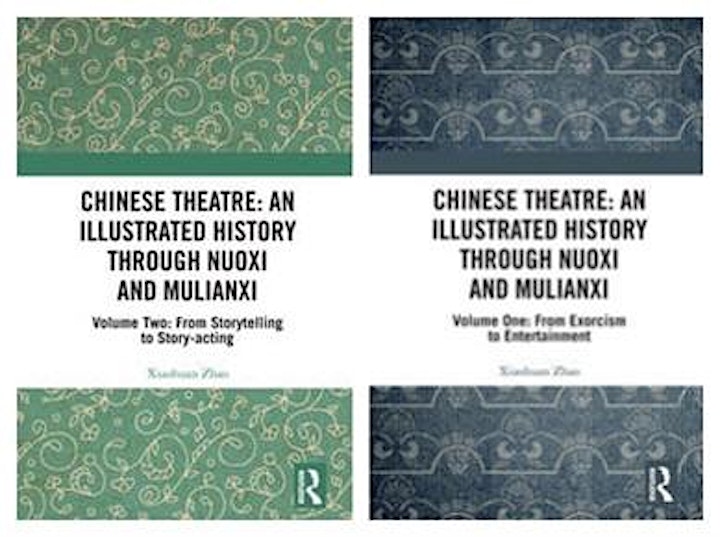Date: Wednesday 1 June 2022
Time: 12.00-1.00pm
Location: Online event
About the event
The subject of this book is Chinese temple theatre, the predominant venue and form for theatrical performance in premodern China. With a view to evaluating the role of Nuoxi and Mulianxi, the two most representative and preponderant genres of Chinese temple theatre in the development of xiqu or traditional Chinese theatre and drama from ritual to ritual drama to drama, the book provides a panoramic perspective that allows every aspect of Nuoxi and Mulianxi to be considered, not in the margins of xiqu but in and of themselves. The book is thus designed to explore the origin and historical development of xiqu from its shamanic roots in Shang dynasty (ca. 1600-ca. 1046 BC) exorcism rituals of Nuo to various forms of ritual and theatrical performance presented at temple fairs, during community and calendrical festivals or for ceremonial (celebratory and commorative) functions over the course of imperial history, and into the twentieth-first century, with pivotal types and forms of Nuoxi and Mulianxi examined, explained, and illustrated in association with the development of corresponding genres of Chines performance literature and performing arts.
About the speaker
Xiaohuan Zhao is Associate Professor of Chinese Literary and Theatre Studies. Huan obtained both his B.A. and M.A. from Central China Normal University, and his PhD in Classical Chinese Literature from the University of Edinburgh. He taught at the Universities of Edinburgh and Glasgow in Scotland and Otago in New Zealand before taking up his current position at the University of Sydney.

